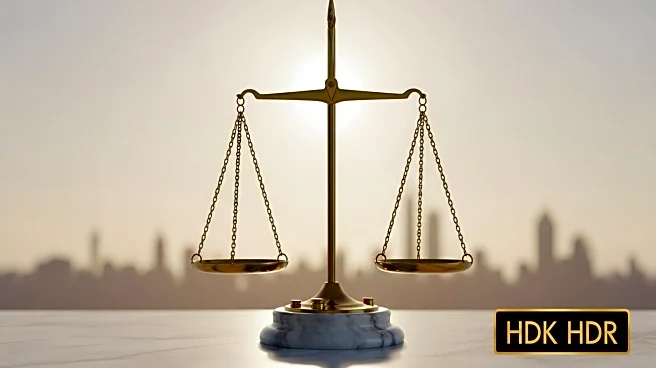What's Happening?
A federal lawsuit has been filed by public defenders in Washington D.C. challenging the authority of the U.S. Parole Commission to arrest and detain D.C. residents. The lawsuit argues that the commission no longer legally exists as Congress did not pass legislation to extend its operations beyond September 30, 2025. The D.C. Public Defender Service is seeking a temporary restraining order to halt the commission's activities and release three individuals currently jailed under its orders. U.S. District Judge Ana C. Reyes has declined to grant the restraining order, citing the need for further review of the commission's legal status. The commission continues to operate, citing a 1997 statute that grants it authority over D.C. residents.
Why It's Important?
The lawsuit raises significant questions about the legal authority of the U.S. Parole Commission, which oversees thousands of D.C. residents on parole or community supervision. If the commission is found to be operating without legal authorization, it could impact the status of many individuals currently under its supervision. The case highlights ongoing tensions between federal and local control over D.C.'s justice system, with local officials advocating for the return of parole authority to the city. The outcome of this legal challenge could have broader implications for the governance and autonomy of Washington D.C., particularly in the context of its push for statehood.
What's Next?
The court will continue to review the legal status of the U.S. Parole Commission, with potential implications for its operations and the individuals under its supervision. Congress may need to address the issue through legislative action to clarify the commission's authority. Meanwhile, the D.C. government may renew efforts to regain control over its parole system, a move supported by local officials as part of a broader push for statehood.
Beyond the Headlines
The case underscores the complex relationship between federal and local governance in Washington D.C., a city that lacks full autonomy and representation in Congress. The legal challenge could reignite debates over D.C.'s statehood and the need for local control over its justice system. Additionally, the lawsuit highlights the broader issue of federal agencies exerting control over local matters, raising questions about the appropriateness and effectiveness of such arrangements.








